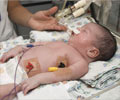: A new study conducted reflects lack of initiative towards pregnancy prevention programs to minimize birth defects caused by acne medication.
Isotretinoin is a drug used to treat severe acne that woks by reducing the sebum secretion. Research done on the effect of the drug in pregnant women reveals that it can cause birth defects. In view of the potential risks, the U.S. Food and Drug Administration and the drug manufacturers developed a voluntary pregnancy prevention program (PPP) in 1988 to try and prevent conception in women taking the drug.
It was soon placed by the SMART program (System to Manage Accutane Related Teratogenicity) that placed more emphasis on pregnancy testing and contraception. The FDA launched a new plan called the iPLEDGE with stricter requirements that required patients and doctors to register in an electronic database before the drug can be dispensed. It also includes the previously stated requirements regarding pregnancy tests and birth control.A survey was conducted among 34 women who became pregnant while taking isotretinoin. These women had contacted a birth defect information service seeking information on the effects of isotretinoin. The purpose of the survey was to evaluate how the drug was dispensed in women who subsequently became pregnant and to identify possible reasons for failure in preventing conception.
The results of the OTIS survey show that the majority of women who participated were treated for less severe disease than is recommended in the SMART program. A total of 24 percent of the women reported receiving contraception counseling while taking the drug.
In addition, the results showed that healthcare professionals and their patients failed to comply with a number of key SMART and/or PPP requirements. According to these requirements, women must have two negative pregnancy tests before receiving a prescription, yet 76 percent of the women in the study said they did not have a second pregnancy test during menstruation. Nearly 35 percent of the women surveyed said they did not have monthly pregnancy tests before the second prescription.
SMART also requires women to use two forms of birth control simultaneously while taking isotretinoin, yet only 62 percent of the women reported using birth control and only 29 percent of these women reported using two forms of contraception. In addition, only 53 percent of the women reported signing the informed consent required by SMART prior to taking the drug.
The study has given valuable insights into factors that hinder the success of pregnancy prevention programs. If these issues are addressed in an appropriate way, then the birth defects caused by such teratogens can be minimized. After all, it is our responsibility to promise a healthy generation, menstruation, negative pregnancy test











